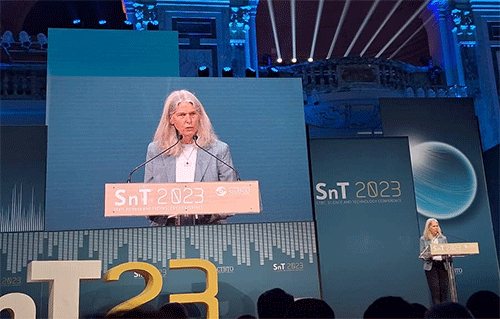VIENNA – The Comprehensive Nuclear-Test-Ban Treaty (CTBT), which bans all nuclear explosions, whether for military or peaceful purposes, provides reassurance to the world, including 51 African states signatory to the agreement, that the globe is striving towards complete and irreversible nuclear disarmament.
This is according to Somalia’s minister of foreign affairs, Abshir Omar Jama, who yesterday said his country remains fully committed to barring all nuclear testing from Africa’s shores and beyond.
Jama was speaking during the opening session of the Science and Technology Conference 2023 (SnT2023), taking place here from 19 to 23 June at the historic Hofburg Palace.
The conference is a biennial event, hosted by the Comprehensive Nuclear-Test-Ban Treaty Organisation (CTBTO). Jama further pointed out that in southern Africa, the crucial treaty is universally accepted.
Namibia has been a signatory of the CTBT since June 2001.
Now in its seventh edition, the conference is a multidisciplinary event, serving as a premier platform for fostering collaboration and strengthening connections among more than 1 700 scientists, researchers, technologists, policymakers, CTBTO member states as well as participants from academia, civil society and the media.
This year’s conference takes place under the theme, ‘The Power of Together’ and was officially opened by CTBTO executive secretary, Robert Floyd.
During the five-day conference, attendees are expected to engage in insightful discussions, exploring the latest advancements in research and technologies pertaining to the CTBTO’s nuclear test monitoring system.
The event is anticipated to provide an opportunity to delve into the extensive civil and scientific applications of data gathered, encompassing areas, such as natural disaster prevention, marine life studies as well as observations of volcanoes and icebergs.
The conference’s agenda also features critical topics, including the development of the On-Site Inspection (OSI) capabilities of the CTBT verification regime, and collective efforts towards the treaty’s universalisation and entry into force.
Also speaking at the opening session of the conference, undersecretary of South Sudan’s foreign affairs ministry Mayen Dut Wol said his country remains dedicated to peace and security in its region and the rest of the world.
“We can build a future where all nuclear testing is eradicated… South Sudan is keen to sign the CTBT to ensure a safe world for all to promote global peace and security,” said Wol.
Speaking to the delegates via a pre-recorded video, United Nations under-secretary general and high representative for disarmament affairs Izumi Nakamitsu noted that one way to speed up global nuclear disarmament is to close the technology gap.
For this to happen, she stated, the private sector has a huge role to play.
“We have to ensure that science and technology must be used for the advancement of humankind”.
She added the CTBTO has made numerous contributions to humanity but added the organisation’s full potential is yet to be realised.
The treaty comprises a preamble, 17 articles, two annexes and a protocol with two annexes. The resolution of the treaty was adopted by state signatories on 19 November 1996.
Meanwhile, yesterday’s keynote address was delivered by the United States of America’s undersecretary for nuclear security and administrator of the US nuclear security administration Jill Hruby, who said the US has a strong and enduring commitment to the CTBT.
However, she added that “as long as nuclear weapons exist, the US will maintain a nuclear arsenal. She also noted that US president Joe Biden in a recent statement said his country continues to observe a moratorium on nuclear testing. The USA last conducted a nuclear test in 1992.
– ebrandt@nepc.com.na



